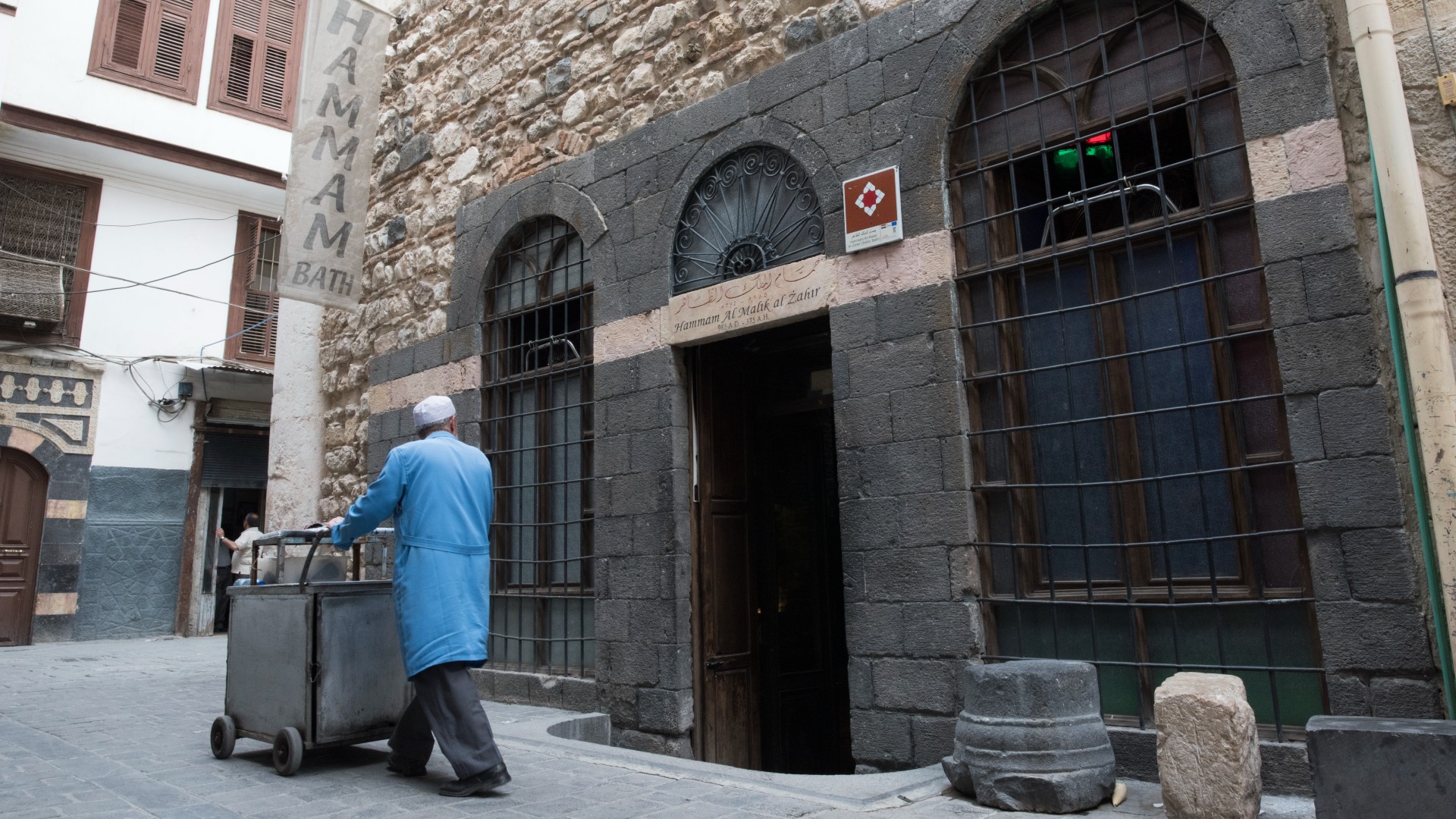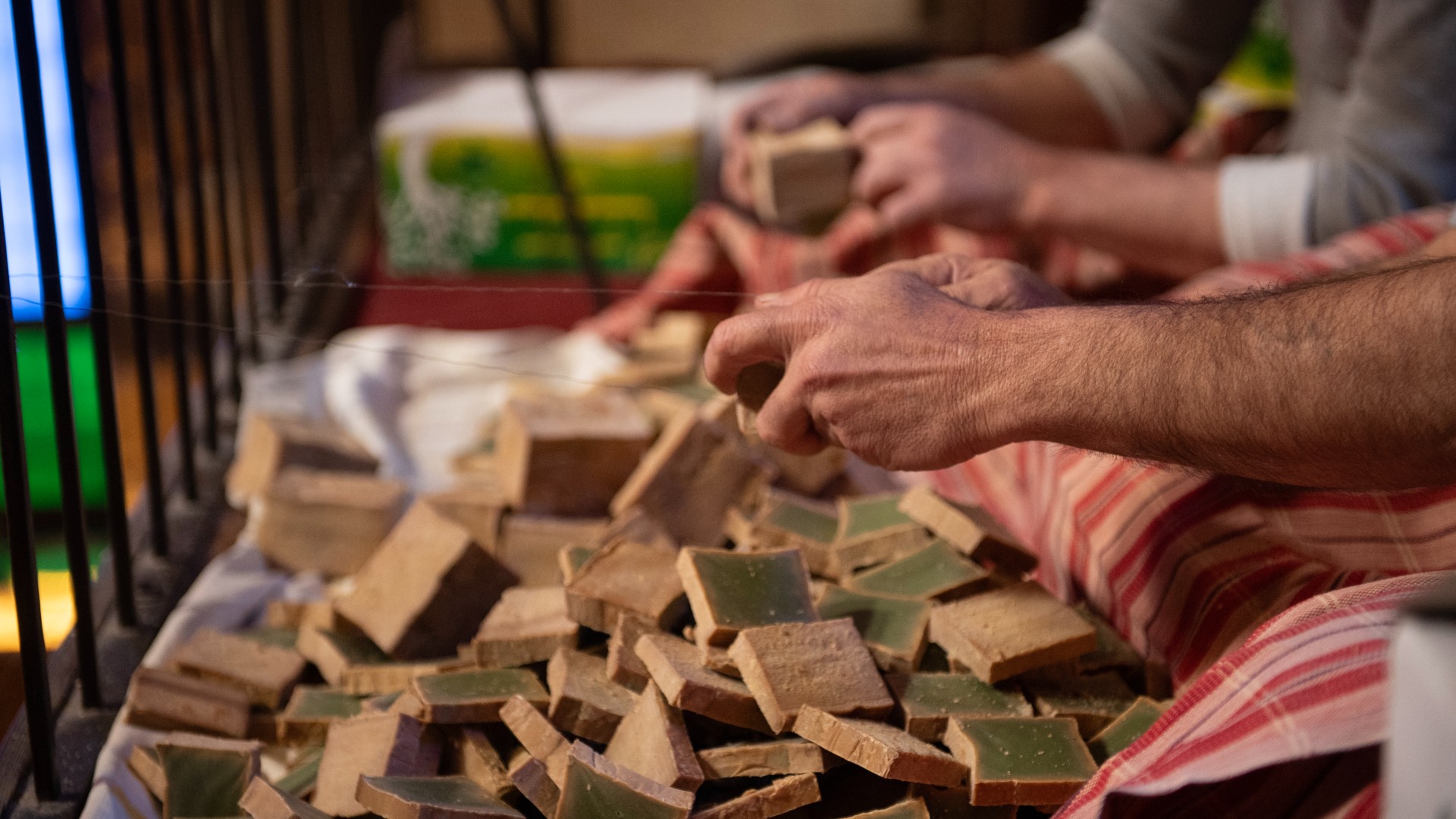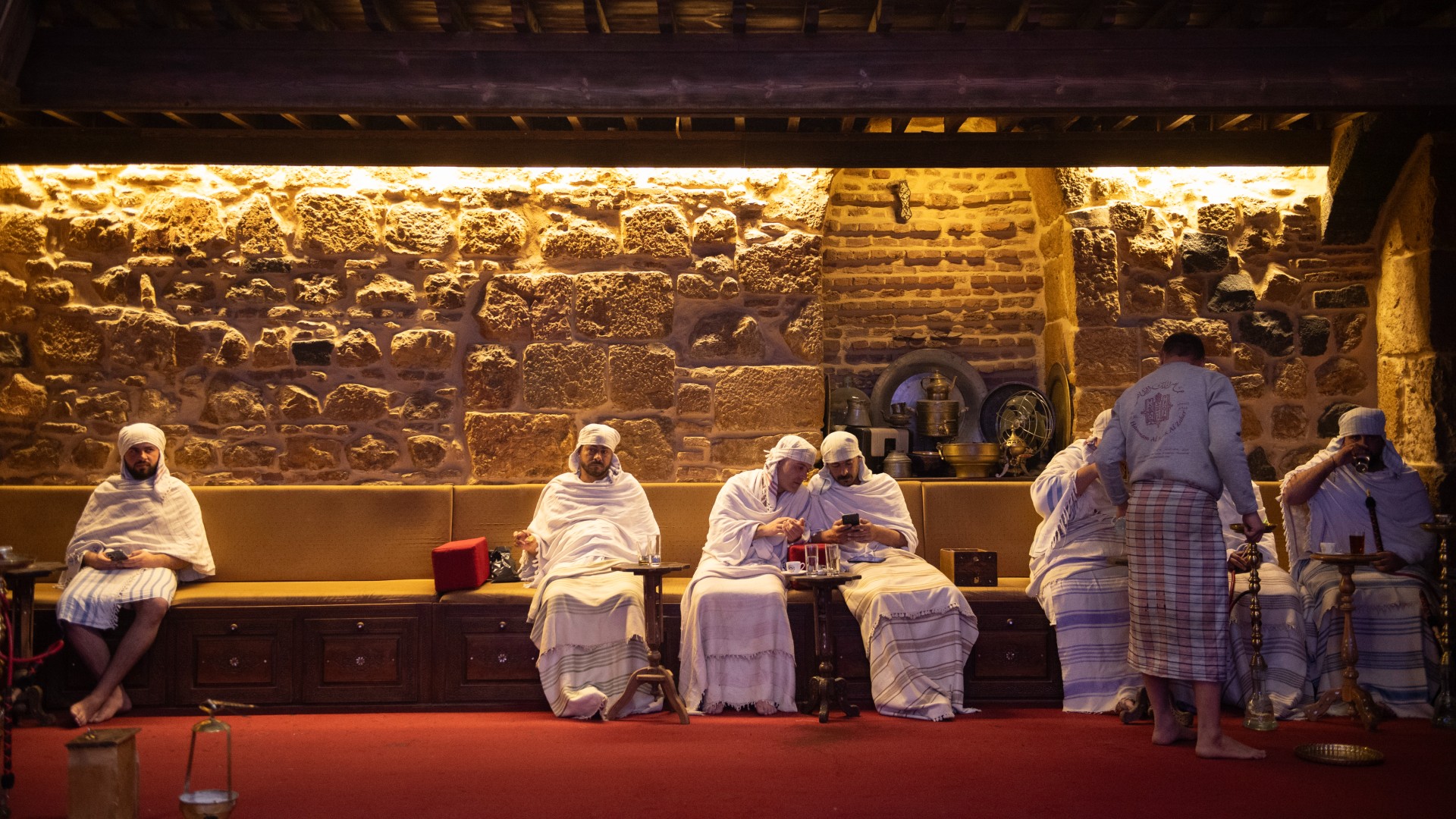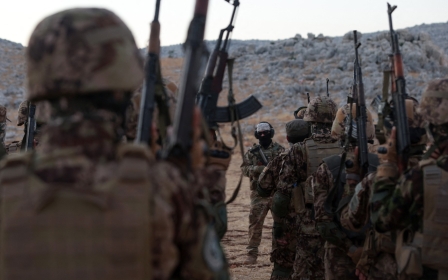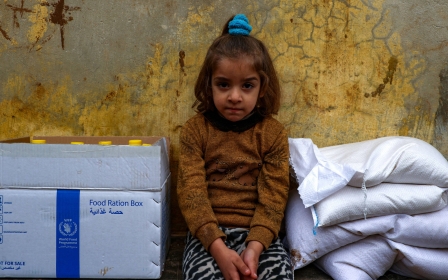Unable to heat homes, Syrians wash away their woes in ancient hammams
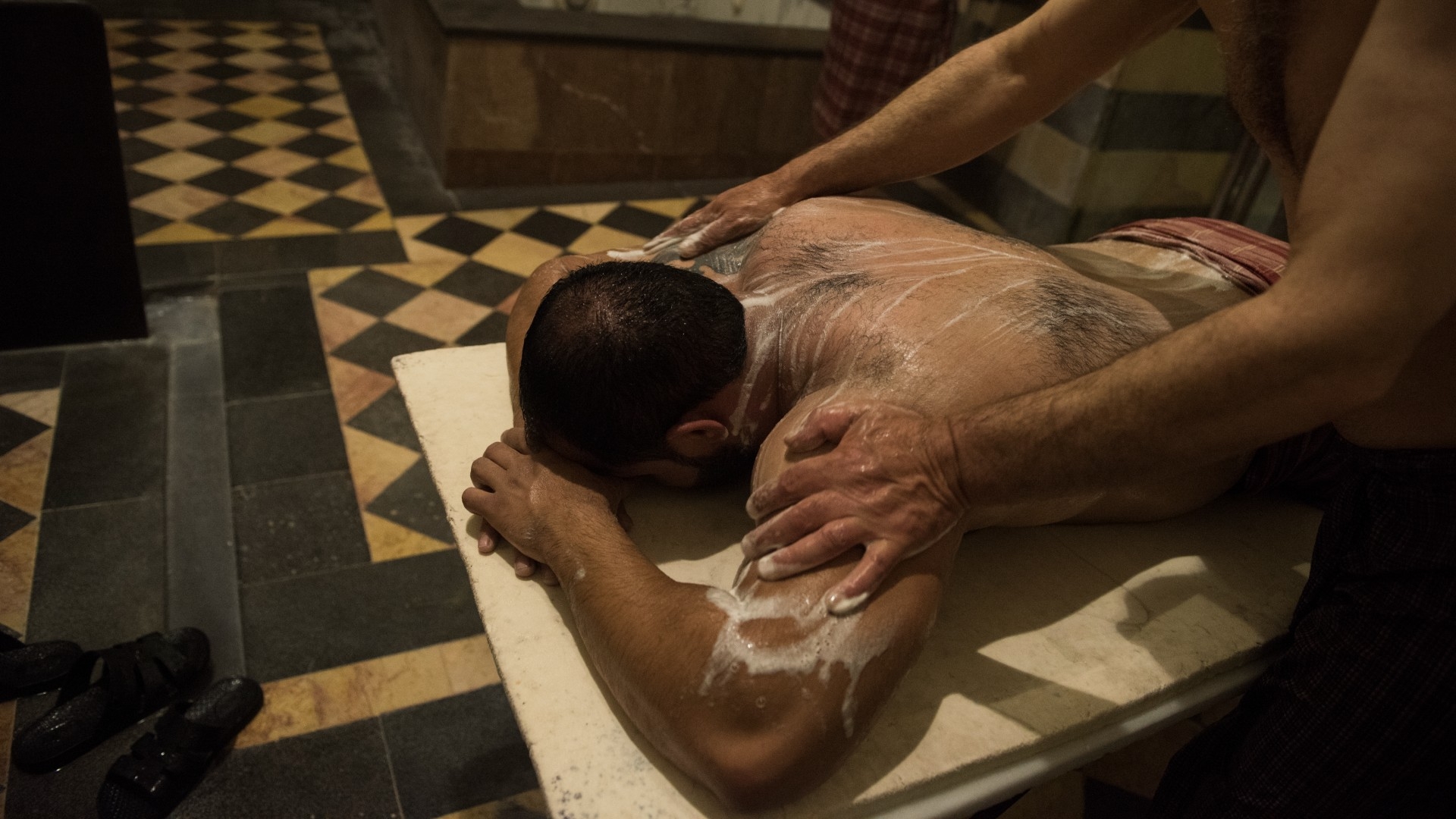
Nestled within the labyrinthine alleyways of ancient Damascus lies Hammam al-Malik al-Zahir, the world's oldest operational bathhouse, built in 975.
The building has a reputation for being a historic treasure in Damascene culture, yet now it is increasingly a comfort for cash-strapped Syrians in tough economic times, with fuel and electricity shortages reigniting an age-old passion for public baths.
Even though the Syrian lira stabilized at 15,000 to the US dollar in late 2023, salaries continue to be as low as 200,000 lira, or about $14 a month, providing Syrians with barely enough to scrape by. That makes public services, which are often much cheaper than meeting needs privately, in high demand.
Amid the steamy rooms and the constant echo of splashing water can be found Bassam Kabab, 50, who runs the famous hammam and has watched custom rise as Syria's economy declines.
He told Middle East Eye that the hammam is receiving the same number of people as before the country's civil war started in 2011.
New MEE newsletter: Jerusalem Dispatch
Sign up to get the latest insights and analysis on Israel-Palestine, alongside Turkey Unpacked and other MEE newsletters
"But the concept of the hammam has changed significantly since then. Previously, most people used to come as a recreational activity. Now people want to preserve their fuel at home," he said.
"People have families, elderly and children, and it's impossible to maintain a house that's always warm or has hot water, as heating is expensive and power is in short supply."
Black-market diesel for domestic heaters in Syria can cost around $10 for 10 litres, which doesn't last long while pushing heating bills to unacceptably high levels
"Hammam al-Malik al-Zahir isn't just the oldest public bath in the world, going back to the 10th century, but we are the oldest family that works in this industry, generation after generation for 150 years," Kabab said.
"My grandfather was the top person in Syria in this field, so all the details and secrets are present with us and passed down over time."
'We saw some really bad times'
When a crackdown on anti-government protests in 2011 spiralled into an ongoing, if frozen, civil war, life in Damascus was upended. Though the capital's historic centre was largely spared, large areas of the city and its environs became front lines.
"People stopped coming in during the crisis," Kabab said. "Shops closed early and people didn't like to go out. But now, with the economic situation, the bath is more popular and an activity: getting clean, drinking tea, we're a community."
Though the violence in Syria has decreased from its height between 2012 and 2018, the economy has since collapsed. As Syria's lira has depreciated, people have far less money to spend.
In the 2024 budget, the share of spending on public subsidies and other support programmes was at 18 percent, down from almost 30 percent in 2023.
Syrians now have far less money to spend on necessities, with the UN estimating that people need around 1,350,00 lira ($94) per month for basic expenditure.
"We saw some really bad times at the hammam. There was a lot of pressure and stress. We kept it open and at an enormous loss, we were paying lots of expenses. But now people need us, and we are here for them," Kabab said.
In the hammam's marble steam room sits an enthusiastic middle-aged client, draped in white towels and sporting a bushy moustache.
"In these hard times and the difficult winter, this place is a welcome escape for me and my friends. It's a good way to socialise and enjoy the tradition. It's easier than waiting for the electricity or hot water at home; there just isn't the income to always buy diesel," he told MEE.
"Look around you. The hexagonal fountains, music, food and drink, who would want to bathe at home? It's a social habit now."
Back to tradition
The Zahir Hammam was built by prominent 10th century Damascene Ahmad bin Hassan al-Aqiqi, and then sold 150 years later to the Mamluk sultan, Saaed Nasser al-Deen.
The techniques used in the hammam have remained the same ever since.
"Our masseurs still use soap, which we cut into halves and quarters so it lasts longer, and loofahs to scrub the visitors clean," Kabab said.
Clients are laid on their backs on the hammam's marble floors or on the platforms dotted around, and subjected to a hearty scrub. "It can be painful sometimes," Kabab said with a smile.
"We use diesel to heat the water. We used to use firewood, but that's no longer economically viable for us. Logistically and financially it's hard to bring wood in, so we use diesel heaters instead"
Hammams have been a tradition in Damascus and elsewhere in the Middle East and North Africa for centuries. They are segregated by gender, with men and women accessing at different times or days.
Syrians use them to meet up with friends and family, as well as enjoy the ritual of bathing.
Yet public baths dwindled in popularity in the 20th century, with many of them closing or becoming tourist attractions.
Now, with the harsh winter temperatures, they have become cornerstones of society, places to wash away the woes of the outside world.
Some areas of government-held Syria endure power cuts as long as 20 hours a day. The hammam, therefore, has become the only place available to regularly get clean by using hot water.
Muhammad Dobsh, 42, is a regular visitor.
"For me, these locations have a specific charm. I like being here. It's cheap to use, and you feel you are in a different universe to the one outside," he told MEE.
"When people really can't afford it, these locations help. My wife even goes with her friends."
This article is available in French on Middle East Eye French edition.
Middle East Eye delivers independent and unrivalled coverage and analysis of the Middle East, North Africa and beyond. To learn more about republishing this content and the associated fees, please fill out this form. More about MEE can be found here.


